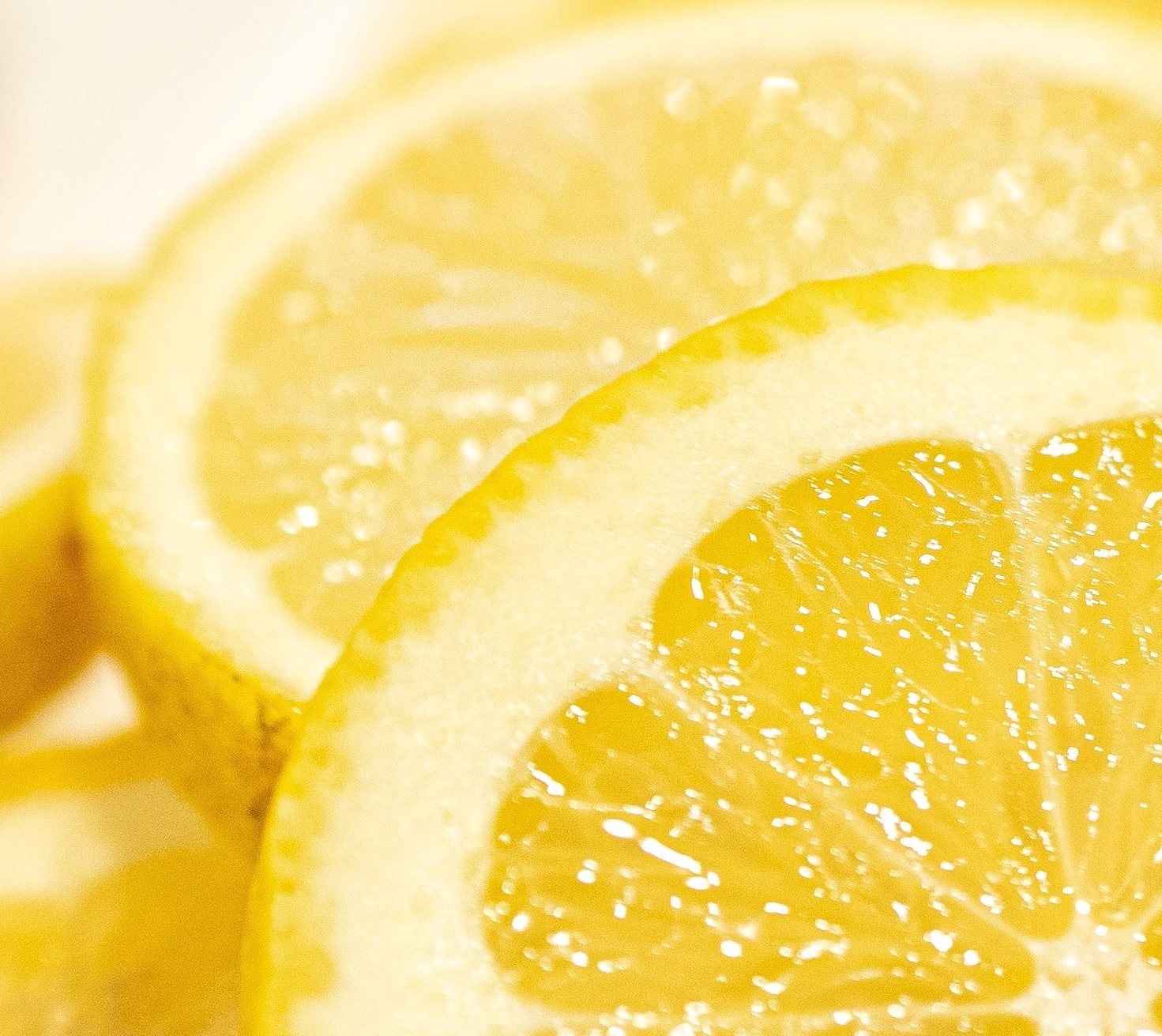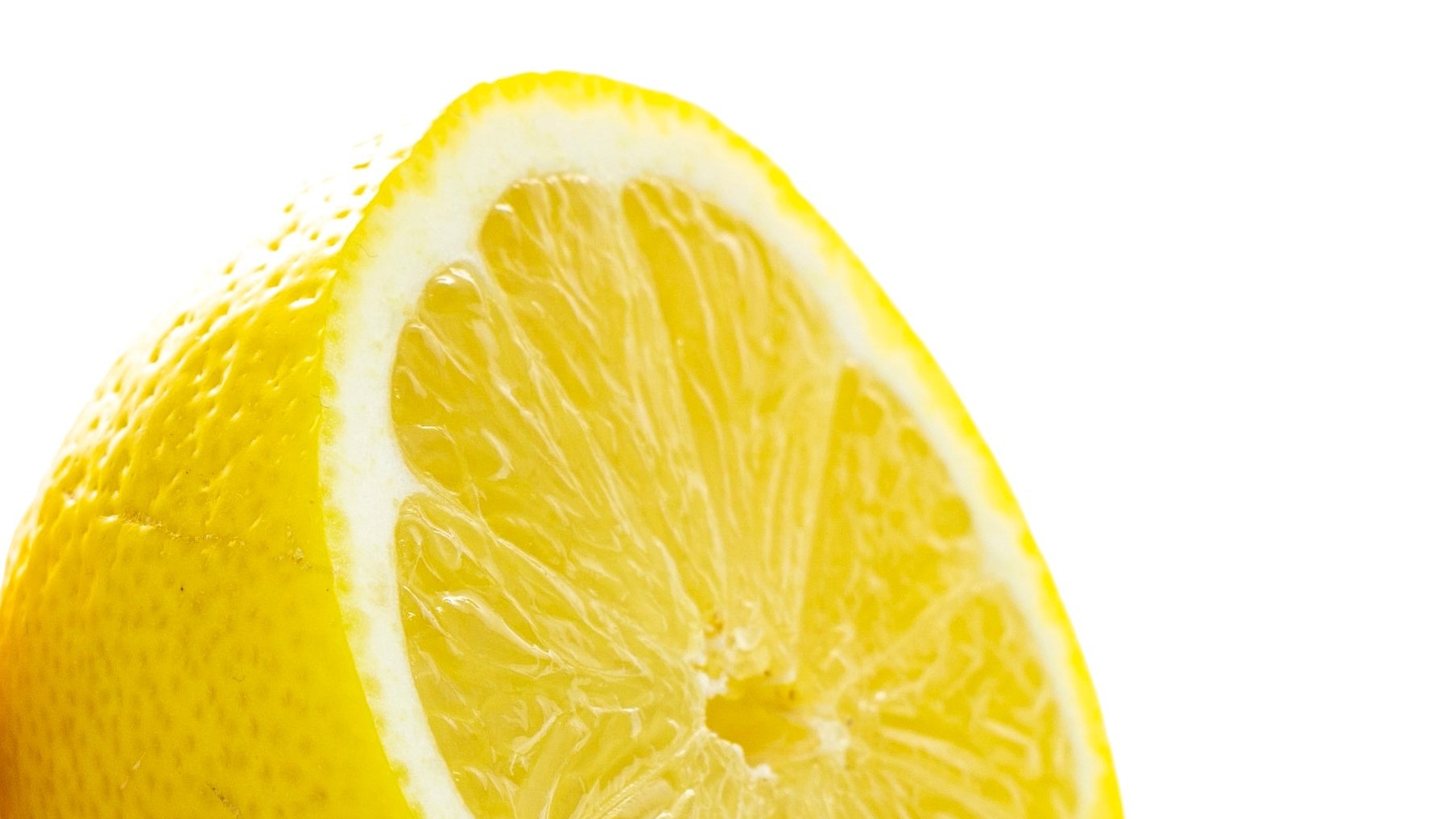Stephanie first heard of 'the lemon juice trick' years ago, when she was still in highschool. All natural, salon quality highlights for the price of a lemon an afternoon spent in the sun? It sounded like a no brainer -- she lemon juice'd up for some time outside.
But things didn't go quite as planned for the brunette beauty. Stephanie writes via email, "Just because it lightens your hair it doesn't mean the results will look like a professionally dyed color. Afterwards my strands were an awful rusty orange color! Wish I would have known."
Lemon juice might lighten your hair... but not in a good way.
Stephanie isn't alone in her sub-par highlighting experience. Colorist Karen Anne Jacks says that while lemon juice might be okay for natural blondes level 8 and above, she would never recommend the DIY treatment to a brunette, or someone with artificial color in their hair. Doing so could result in undesirably orange-y hue -- not a cute look.
 Also -- if you've got big plans for a middle-of-winter lemon lightening session, we've got some bad news. Without the sun, lemon juice alone probably won't alter your hair's color much at all. According to the hair gurus over at Beauty Brains, "the citric acid found in lemon juice is a very weak oxidizer, so it works like peroxide but much weaker.... Typically, people put lemon juice on their hair and then go out in the sun. It takes a lot of lemon juice and heat helps, and the the sun does a lot of the lightening."
Also -- if you've got big plans for a middle-of-winter lemon lightening session, we've got some bad news. Without the sun, lemon juice alone probably won't alter your hair's color much at all. According to the hair gurus over at Beauty Brains, "the citric acid found in lemon juice is a very weak oxidizer, so it works like peroxide but much weaker.... Typically, people put lemon juice on their hair and then go out in the sun. It takes a lot of lemon juice and heat helps, and the the sun does a lot of the lightening."
Lesson learned: it's the combination of the citric acid, the sun, and the heat that causes hair to lighten. So don't expect results unless you're willing to go outside.
Lemon juice and the scalp don't mix.
Stephanie is now a licensed esthetician, and her specialty is skincare. She offers a word of warning on lemon juice and other such routines: "Due to the fact that many people have sensitive skin or are prone to irritation, doing DIY hair treatments may not be the best idea. Many ingredients can cause sensitivity, irritation, redness, bumps, peeling etc."
She's not wrong -- our experts agree that if you've got sensitive skin, lemon juice + skin + sun = rash. It takes a lot of lemon juice to lighten hair, so you'd have to be pretty careful to avoid all contact with your scalp/shoulders/face/body if you decided to give it a whirl.
 One of our biggest concerns is the acidity of lemon juice, and its potential to disrupt the microbiome on your scalp. Human skin is weakly acidic; the ideal pH of human skin is about a 5, while the average pH of skin is about a 5.5. Lemon juice, meanwhile, has a pH of 2. While that might not sound like a big difference, it really, really is -- the pH of battery acid is 0, meaning that lemon juice is closer in pH to battery acid than it is to human skin.
One of our biggest concerns is the acidity of lemon juice, and its potential to disrupt the microbiome on your scalp. Human skin is weakly acidic; the ideal pH of human skin is about a 5, while the average pH of skin is about a 5.5. Lemon juice, meanwhile, has a pH of 2. While that might not sound like a big difference, it really, really is -- the pH of battery acid is 0, meaning that lemon juice is closer in pH to battery acid than it is to human skin.
So why does it matter? Two words: acid mantle. This is the part of your skin that seals in moisture and protects you from infection. Mess with it too much (i.e. put things on it that are too far away from it on the pH scale), and you could experience itchiness, dryness, dandruff, acne, et cetera.
We advise that you play it safe, and keep the lemon juice in your kitchen and out of your hair.
Stephanie says it best: "Not all treatments especially when found on a Google search are the most successful or even the safest, but a lot of us forget to look at the big picture."
So true, girl. So, so true.
Thirsty for more hair knowledge? Here's what to check out next:
How Often Should You Brush Your Hair?
We talked to the experts to find out
Living With An Oily Scalp + Dry Ends
#unfair, right?
How Long Does It Take For Hair To Grow Back?
How long does it take for hair to grow back after a bad cut?
Is Hair Alive?
The answer might be a little more complicated than you thought 👀


 Also -- if you've got big plans for a middle-of-winter lemon lightening session, we've got some bad news. Without the sun, lemon juice alone probably won't alter your hair's color much at all. According to the hair gurus over at
Also -- if you've got big plans for a middle-of-winter lemon lightening session, we've got some bad news. Without the sun, lemon juice alone probably won't alter your hair's color much at all. According to the hair gurus over at  One of our biggest concerns is the acidity of lemon juice, and its potential to disrupt the microbiome on your scalp. Human skin is weakly acidic; the
One of our biggest concerns is the acidity of lemon juice, and its potential to disrupt the microbiome on your scalp. Human skin is weakly acidic; the 